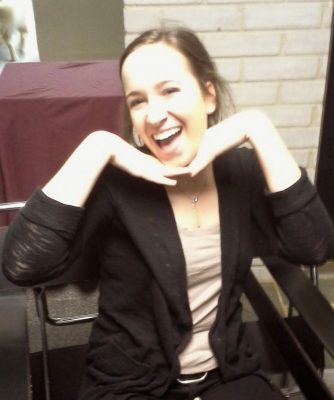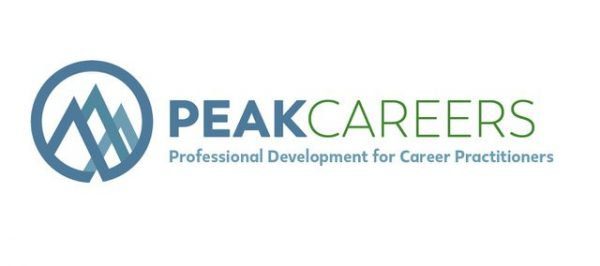“Today is not the day to be humble”, is what I often say to people when doing a mock interview.
Interviewing is one of the areas of the job hunting process that so many people freak out about. I do lots of mock interviews with college students and mid-life career changers, and I am amazed that so few people understand WHAT an interview is. If you don’t know what it is that employers are looking for, then you won’t know what to do in one.
The goal is to find someone who adds the greatest value to the company that other employees will get along with.
With that in mind, here are six of my tips to “up” your clients’ interview game.
1. The interview starts in the parking lot. At one place of business where I worked the administrative assistants were part of the interview process. They met each person, offered something to drink, asked them to sit down, and then told them when the interview would begin. My boss and I interviewed the candidates and when the interviewee had left, we asked both admins what they thought of the candidates.
Often we’d hear that they were rude to them or simply non-communicative or very uneasy. Other times we heard they really connected with them, were very nice, polite, and professional. We NEVER hired anyone the admin’s didn’t like.

2. What can YOU do to “add value” to the company? This is the filter you should have on whenever you answer a question, say hi to a person, or ask them questions. This is NOT about what you gain from getting the job but what value you add to the company. Be clear and be specific. What skills do you have? What personal character traits would benefit them? What accomplishments do you have related to this position?
I volunteered recently to do mock interviews in a local high school and when I asked one student, “Why do you want this job?” He replied, “It looks like an easy way to make money”. WRONG ANSWER.
3. Think in threes. There is something about our brains that likes threes. If I ask you “What skills do you bring to the position?” and you answer giving me ten skills, I simply won’t remember them all. You give me three or four of your top skills and I will though.
“Tell me about yourself (in the context of this job).” If you tell me ten things about yourself, I’ll probably be bored. You can give me two or three past jobs and three or four related skills and you’ll be memorable but if you ramble on telling me ten different disconnected things about yourself, you’ll have lost me on what is often one of the first questions.
Thinking in threes will also be easier for you to remember important skills and interests that you want to share with the company. Plus, your answer should be somewhere between one and two minutes (unless they are asking you a problem-solving question).
4. Tell me a story. When working with college students or young professionals, I tell them that they need at least 5-8 stories to tell that highlight skills, accomplishments, character traits, or passions. People remember stories and you want to be memorable. All stories should have a purpose in telling them, either to highlight something you did or to demonstrate you learned something. All stories have a beginning, middle, and an end. Leave one out and it ain’t a story.
BEGINNING: Describe the scene so the interviewer understands the context.
MIDDLE: Next, identify what YOU did to make this happen. Be specific and make sure you are teaching the person something positive about you.
END: Give me the results of what happened. Even if it was not positive, what did you learn from it? Describe what you would do differently next time.
I asked one student to tell me a time when she had to work with a difficult person. She went on to describe a group project in one of her classes and what she did but completely left out what happened. Did she pass the project? Did the problem-student fail and the rest of the group pass? I told her it was like she had given me a book and ripped out the last chapter!
5. Skype or phone interviews. Many companies are doing Skype interviews or phone interviews in round one. Dress as if you were going to the company for the interview for both. If you dress up you WILL act more professional. You will think more clearly and you will typically enunciate better.
Find a quiet place to do the interview, one that you will not get interrupted by loud music, traffic, dogs barking, etc… Think about what could go wrong and try to deal with it in advance. Most colleges have interview rooms you can use but if you are not at a college and do it from home, make sure you have done everything possible to keep the interview professional.
If it is a Skype interview, take the time to position your computer video so the background is not distracting. Is there a lamp sticking out of your head? Does your laptop look up your nose to the ceiling? It only takes a minute to check it out but you don’t want any distractions to take away from your interview.
Make sure you have strong cell phone coverage and if you can find a room with a landline you can use, choose that over a cell.
There was a college student who insisted on using his cell phone for an interview because he didn’t want to bother the person and give them a different number to call. He was in the interview room and discovered that while in the room his cell phone coverage was bad. So he ended up standing in the hallway of the administration building with people walking by him, talking, closing doors. Once I realized what he was doing, I whisked him into an office space for him to finish it.
6. Practice, practice, practice. Any skill can be improved through practice. Throwing a baseball or shooting a basket takes practice and interviewing is no different. The best is to do a mock interview with someone like a career coach/counselor or at least someone who has done interviews in the past. You can also video yourself on your phone or computer so you can see what you look like.
Then get out there and do it! The more interviews you do the better you’ll get. It really is that simple.
What tips do you have for clients/students for interviewing?
———————————
Jim Peacock is the Principal at Peak-Careers Consulting and writes a monthly newsletter for career practitioners. Peak-Careers offers discussion-based online seminars for career practitioners focused on meeting continuing education needs for CCSP, GCDF and BCC certified professionals as well as workshops for career practitioners and individual career coaching. He is the author of A Field Guide for Career Practitioners: Helping Your Clients Create Their Next Move
Sign up here to receive my TOP 10 TIPS WHEN WORKING WITH AN UNDECIDED PERSON. You can also receive the career practitioners newsletter which includes a variety of career topics, industry news, interesting events, and more.




Develop an interview presentation to bring to your interview http://www.interviewbest.com
Hi Eric,
What do you mean by developing an interview presentation?
When you say preparation, what are the pieces to that Chris?
Great tips! The “think in threes” is new to me and I really like that approach!
Something else I tell students is: the job description is your cheat sheet! It gives great clues on topics they will ask in an interview and will help guide what your stories should include.
Thanks for this great article!
Thanks Mary. Yeh, the job description seems so obvious to me but I often have to explain that SOMEONE wrote that job description and they thought every word was important. Pay attention to it.
Hello, Jim. Smart tips!! Having just been through many interviews myself, I think your suggestions are dead on.
I get nervous in interviews so I practiced a lot, especially the 3 biggies: (1) Tell us about yourself, (2) Why should we hire you? and (3) Why do you want this job?
I came with notes that I laid out on the table. I told the interviewing team that I might refer to the notes to make my points concise and make sure I did not leave anything out. Nobody seemed to mind.
Ending each point or story with “What this means for you is…….” or “This is important to this job because……” seemed to strengthen the message and let them know I understood their needs.
Thanks!! 😉
I teach a job search workshop to adults of all ages who are temporarily between jobs. Your tips are appropriate for any age. The one question every interviewee has to grapple with is telling an employer about their weaknesses, when asked. I tell them to think of one before ever getting an interview so it doesn’t sound like they are “grasping for straws” for answer during.
Thanks for your thoughts.
Holly’s comment about becoming nervous reminds me to caution students to read the body language (theirs and the employer’s). Signs of nervousness (or boredom) can be very distracting! To help students control the nerves and to avoid distracting displays of nervousness, I recommend a small gesture of clasping your hands on your lap, but in a way so that your fingers are entwined (but hidden from view). When the nerves start to shake, squeeze to control them — without anyone’s noticing! I once had a student who came back for a second mock interview. i complimented her on how composed she seemed. She said she was still nervous, but she was practicing that tip, and it worked! I didn’t notice that she still was nervous!
@Lorene and Glenda,
sorry for the delay in approving your comments, I was in Canada last week.
Great points from both of you. Weaknesses are tough ones for sure but we all have weaknesses. The key is recognizing them and knowing that most weaknesses are countered with other strengths.
Nervousness is normal but as you point out Glenda, you can contain some of it by controlling your hands. I also think you can do some “power poses” in the bathroom before you walk into the interview to give you confidence. (stand up and stretch your arms out as far as you can to make yourself as BIG as you can). It works!